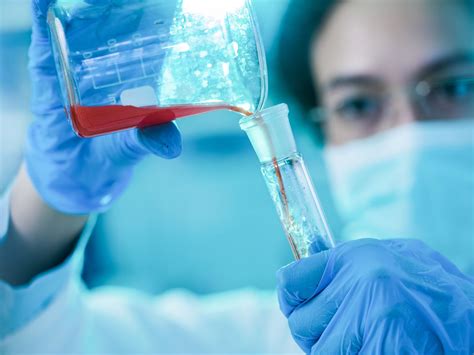A Legacy of Excellence in Chemical Engineering
Michigan State University’s (MSU) Department of Chemical Engineering and Materials Science is renowned for its exceptional academic programs and groundbreaking research. The department ranks among the top 10 chemical engineering programs in the United States according to U.S. News & World Report.

World-Class Faculty and Laboratories
The MSU Chemical Engineering program is led by a distinguished faculty of renowned researchers and educators. With over 30 full-time faculty members, the department offers a wide range of expertise in areas such as catalysis, process control, bioengineering, and materials science.
The department boasts state-of-the-art laboratories equipped with cutting-edge instrumentation. These facilities provide students with hands-on experience in unit operations, process control, and materials characterization. MSU’s Materials Characterization Facility is a national leader in electron microscopy and surface analysis, offering students access to the latest analytical techniques.
Rigorous Curriculum and Hands-On Learning
The MSU Chemical Engineering curriculum provides students with a solid foundation in chemical engineering principles and emerging technologies. Students take a rigorous sequence of core courses that cover topics such as thermodynamics, fluid mechanics, heat transfer, and reactor design. In addition, students have the opportunity to specialize in areas of interest through elective courses and research projects.
The department emphasizes hands-on learning through a variety of experiential opportunities. Students participate in laboratory experiments, design projects, and internships with leading companies in the chemical, pharmaceutical, and energy industries. This practical experience equips students with the skills and confidence needed to succeed in their careers.
Cutting-Edge Research and Innovation
Chemical engineering research at MSU is focused on solving global challenges and advancing the field. The department’s research portfolio includes projects in the areas of:
- Advanced materials for energy and sustainability
- Bioprocessing and biotechnology
- Catalytic processes for chemical production
- Computational modeling and simulation
- Environmental engineering and pollution control
MSU Chemical Engineering faculty collaborate closely with industry partners and national research institutions to translate their discoveries into real-world applications. The department’s research expenditures exceed $10 million annually, supporting over 100 graduate students and postdoctoral researchers.
Career Opportunities and Industry Connections
MSU Chemical Engineering graduates are in high demand by leading companies in a variety of industries. Chemical, pharmaceutical, energy, and manufacturing companies regularly recruit MSU graduates for positions in process design, product development, and research.
The department maintains strong relationships with industry partners through its Industrial Advisory Board. The board provides guidance on curriculum development, research priorities, and career opportunities for students. Through these connections, students have access to internships, industry-sponsored research projects, and mentoring from experienced professionals in the field.
Alumni Success and Global Impact
MSU Chemical Engineering graduates have achieved remarkable success in their careers. Alumni work as engineers, scientists, executives, and entrepreneurs at leading companies and institutions around the world. They have made significant contributions to the advancement of chemical engineering and the development of innovative technologies that address global challenges.
The department’s alumni network is active and engaged in supporting current students and promoting the profession. Alumni provide mentoring, scholarships, and internship opportunities to students, creating a vibrant and supportive community.
A Catalyst for Innovation and Impact
Michigan State University’s Chemical Engineering program is a catalyst for innovation and impact. With its world-class faculty, cutting-edge research, and industry connections, MSU Chemical Engineering prepares students to become leaders in the field and solve the world’s most pressing challenges.
Additional Information
Degree Programs
- Bachelor of Science in Chemical Engineering
- Master of Science in Chemical Engineering
- Doctor of Philosophy in Chemical Engineering
Research Centers and Institutes
- Center for Advanced Catalyst Design (CACD)
- Bioengineering and Therapeutic Sciences Center (BTSC)
- Computational Chemical Engineering Research Center (CoCCER)
- Institute for the Environment (IFE)
External Resources
- Department of Chemical Engineering and Materials Science website
- U.S. Bureau of Labor Statistics: Chemical Engineers
- American Institute of Chemical Engineers (AIChE)
Tables
Table 1: Key Statistics
| Statistic | Value |
|---|---|
| U.S. News & World Report Ranking | 10th |
| Number of Faculty Members | 30+ |
| Research Expenditures | $10 million+ |
| Graduate Students | 100+ |
| Alumni Network | Global |
Table 2: Curriculum Highlights
| Core Courses | Elective Courses |
|---|---|
| Thermodynamics | Bioprocess Engineering |
| Fluid Mechanics | Catalysis |
| Heat Transfer | Polymer Science |
| Reactor Design | Computational Fluid Dynamics |
| Process Control | Advanced Materials |
| Engineering Ethics | Green Chemistry |
Table 3: Career Opportunities
| Industry | Job Titles |
|---|---|
| Chemical | Process Engineer, Research Engineer, Product Developer |
| Pharmaceutical | Manufacturing Engineer, Quality Assurance Engineer, Scientist |
| Energy | Drilling Engineer, Reservoir Engineer, Renewable Energy Specialist |
| Manufacturing | Production Engineer, Plant Manager, Quality Control Engineer |
Table 4: Research Areas
| Research Area | Examples |
|---|---|
| Advanced Materials | Nanomaterials, Biocompatible Materials, Energy Storage Materials |
| Bioprocessing and Biotechnology | Biofuels, Pharmaceuticals, Tissue Engineering |
| Catalytic Processes | Heterogeneous Catalysis, Homogeneous Catalysis, Biocatalysis |
| Computational Modeling and Simulation | Molecular Dynamics, Process Simulation |
| Environmental Engineering and Pollution Control | Water Treatment, Air Pollution Control, Renewable Energy |
